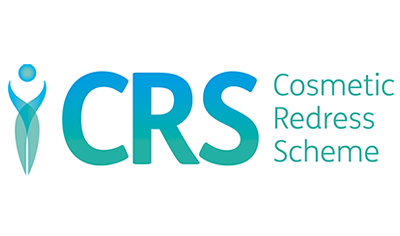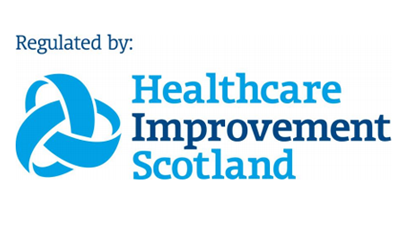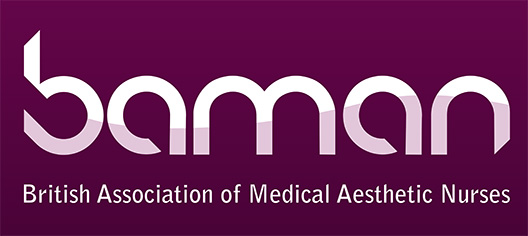Obesity Treatment
Obesity Treatment at dermalclinic® Edinburgh
treatment details
How do you know if you are classed as obese?
Obesity is a medical term used to describe someone who is very overweight with a high degree of body fat, and is generally assessed by using the BMI (body mass index) although another useful indicator is to measure around your waist.
Your BMI is your weight in kilograms divided by your height in metres squared.
Healthy: BMI between 18.5 & 24.9
Overweight: BMI between 25 & 29
Obese: BMI between 30 & 40
Very Obese: BMI over 40 (also classed as morbidly obese)
As muscle is heavier than fat the BMI index is not wholly accurate for very muscular people.
If your waist is 94cm or over (for men) or 80cm or over (for women) you are more likely to develop obesity related health issues.
Obesity problems
As well as serious health problems obesity can shorten your life expectancy.
It's estimated that 1 in every 16 deaths is related to obesity.
Common problems caused by or linked to obesity include the following:
- being out of breath and asthma
- infertility
- problems in pregnancy such as gestational diabetes or pre-eclampsia
- some types of cancer
- increased sweating
- feeling very tired
- back & joint pain
- osteoarthritis
- liver disease
- kidney disease
- reflux
- snoring
- difficulty sleeping
And longer term issues which can cause serious problems to your health include high blood pressure and high cholesterol, which can lead to coronary heart disease and strokes. Type 2 diabetes is another serious condition which can make a significant impact on your life.
As well as physical problems obese people can suffer from psychological issues which can subsequently affect family members and friends and lead to depression.
Such issues are:
- low self-esteem
- low confidence
- isolation
Treatment for obesity
As obesity is generally caused by having a higher intake of calories than those that are used during daily activity, the first recommendation by a GP will always be to reduce calorie intake and increase activity. Your GP may also want to discuss how you feel about your obesity, your family history, your medication, lifestyle and how motivated you are to lose weight.
He or she will probably calculate your BMI and measure your waist as well as take some blood samples.
Your GP may refer you for prescription exercise or to weight loss groups.
Some people really struggle to lose weight through various circumstances and, in such cases, other treatments may be considered such as Orlistat which is a medication that prevents fat being absorbed from food and instead passes it out in faeces . However, this is only prescribed after significant efforts have been made to lose weight already but you still have a BMI of 30 or over. It also won't help you lose weight but will help prevent any further increases but only in conjunction with exercise and a calorie-controlled diet. This is because it can only affect about 30% of the fat you consume.
Weight Loss Surgery
Other options include obesity surgery, otherwise known as bariatric surgery. This is usually a last resort for dangerously obese people and, on the NHS, is only free for people who have been unable to respond to non-surgical treatments and have life-threatening obesity.
Surgery always carries risk and this is proportionally higher with obesity. Because of these risks most NHS and private surgeons will not undertake obesity surgery for cosmetic reasons alone.
As obesity is increasing in the UK demand is high for surgery which results in longer waiting lists.
The 2 most common types of surgery are the gastric band, which reduces the size of your stomach, and gastric bypass surgery, which re-routes your intestine.
The costs for private surgery are approximately:
Gastric Band – £5,000 to £8,000
Gastric Bypass – £9,500 to £15,000
The other consideration for the resulting weight loss is excessive skin. After possibly several years of obesity your skin will have stretched and, as we age, we lose the elasticity levels that we have when younger. A common dilemma is that, after solving the problem of obesity, a new problem arises being excessive folds of skin which may subsequently need to also be removed with surgery. This is rarely done on the NHS and private costs can be the same as the original surgery or more.
Following the surgery, a new lifestyle and dietary plan must be followed to ensure weight isn't regained. We can refer you for a private surgery consultation, if required.
Alevere Edinburgh?
Another alternative is the Alevere weight loss, body contouring and skin tightening therapy at dermalclinic®. This unique and revolutionary therapy not only enables rapid weight loss but also encourages the skin to reproduce collagen and its elasticity. Fast weight loss (1 to 2 stone per month) that's usually only found with surgery can be achieved with the Alevere Therapy but with the benefits of having:
- no surgical costs
- no surgical risk
- no post-surgical corrective surgery
- medically controlled throughout
- re-education about food
- knowledge of your own daily metabolic calorie requirement
- on-going support
Some Alevere patients have found that they no longer have Type 2 diabetes as they complete the programme.
Click here to receive an Alevere Question and Answer video.
Our Awards
Book Online
similar treatments
In Association with:




.png)









